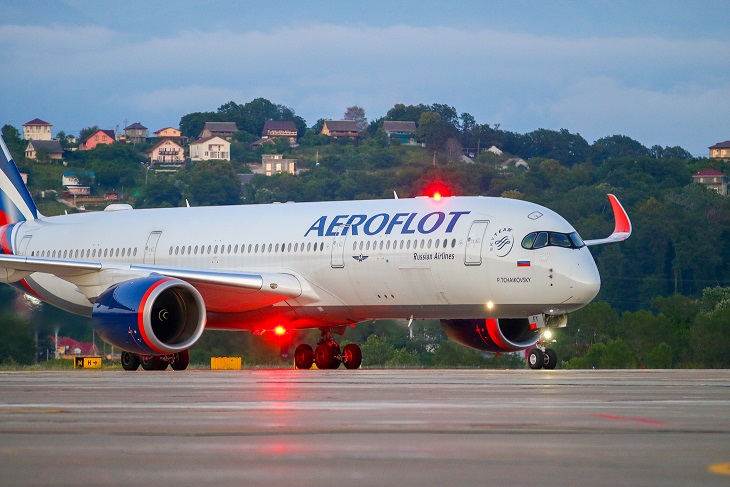The United States arrested two Russians involved in a large-scale scheme to supply Boeing and Airbus parts to Russia
Patsul and Makeev were only part of an international network of secret suppliers

Last Thursday, FBI agents broke into an apartment on the 41st floor of a luxury residential complex in Miami. The apartment, bought 10 years ago for $1.65 million, is owned by MIC-USA LLC, a company owned by two Russian businessmen, Oleg Patsulya and Agunda Makeeva.
On Friday, the detainees were charged in an Arizona district court with violating U.S. sanctions against Russian airlines.
Source. The New York Times reports.
In May, the Russians began to build a scheme to supply aircraft components, the NYT writes, citing court documents. In August, Patsulya sent an email to the Russian Airlines (part of the Aeroflot group), where he wrote:
"In the light of the sanctions imposed on Russian Airlines, we have a successful solution to the problems that have arisen."
As a result, the defendants began to fulfill orders for the supply of spare parts, including an expensive Boeing 737 brake system, for three Russian airlines, according to court documents. Two of these companies were strictly prohibited from selling components made in the United States by a Department of Commerce regulation.
Patsulya and Makeeva were only part of an international network of secretive suppliers that began supplying parts to Russian aviation.
In total, over the past eight months of 2022, $14.4 million worth of banned aircraft parts were shipped from the United States to Russia, including $8.9 million worth of Boeing parts, the NYT reports, citing Russian customs data.
Most of the supplies of copper wires, graphite, locks, a $290,000 Honeywell engine starter, and even simple screws were made through free trade zones, industrial parks, and unknown companies in the UAE, Turkey, China, and the Maldives.
In total, more than 5,000 shipments were made from the United States, the NYT analysis showed, based on customs information provided by trade data aggregator Import Genius.
The recipients were airlines against which the United States imposed sanctions, including Aeroflot, Pobeda, Ural Airlines, and Utair.
The volume of shipments grew over time as Russia created new routes for parallel imports. It took time, but now the established channels "are helping it get some key components," says William George, research director at Import Genius.
In addition, Russian carriers have been receiving parts from the European Union, including those produced at Airbus plants.
Boeing and Airbus assure that they do not supply anything to Russia and carefully track original parts and documentation, as well as check their counterparties.
Airbus said in April that it would exclude from its customer list any company that provides technical support and maintenance if it supplies its parts to Russian air carriers.
Background. Read more about how the Russian aviation industry is coming to a landing in the article "Prolonged downturn: how long will Russian civil aviation last and what determines it".
If you have read this article to the end, we hope that means it was useful for you.
We work to ensure that our journalistic and analytical work is of high quality, and we strive to perform it as competently as possible. This also requires financial independence. Support us for only UAH 196 per month.
Become a Mind subscriber for just USD 5 per month and support the development of independent business journalism!
You can unsubscribe at any time in your LIQPAY account or by sending us an email: [email protected]



